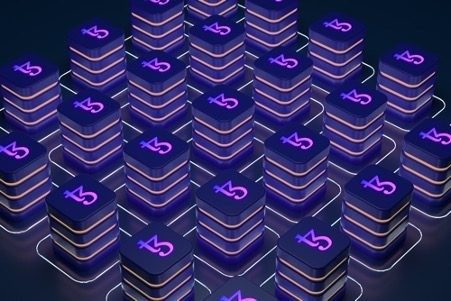Decentralised Finance, or DeFi, is a buzzword in the fintech arena that has gained prominence since the advent of Bitcoin in 2009. The blockchain technology that Bitcoin introduced underpins new markets that are unrestricted by institutional or jurisdictional ties, operating in a regulatory grey area, and allowing for anonymity. We’ll delve into the essence of DeFi, comparing it to traditional finance, and exploring trends that are shaping its future.
DeFi vs Centralised Finance
The contemporary period has been marked by increasing scepticism towards traditional financial institutions. This sentiment, coupled with a libertarian ethos, has emboldened people to operate beyond the reach of these institutions.
Conventional markets, underpinned by regulation, are seen as too stable, and consequently less lucrative for bullish investors. Such markets also appear less accessible to younger generations, driving them towards alternatives like blockchain-based finance. This emerging trend appeals to those willing to embrace financial risks and those disillusioned with established financial institutions.
In the traditional financial world, regulations act as gatekeepers, making economic participation more complex and often more costly. Transaction costs, payment provider fees, and banking profits are common grievances. However, these issues are mitigated in the DeFi space.
The Double-Edged Sword: Freedom and Risk in DeFi
The absence of strict regulations in DeFi allows for participant anonymity and a lack of middlemen profiting from investments. Furthermore, by engaging in DeFi transactions, users might find themselves outside the purview of certain tax obligations, opening up novel economic possibilities.
DeFi offers improved accessibility, complete transparency with all transaction records publicly available, and anonymity. However, this new market also introduces considerable volatility. The value of investments in DeFi is determined by the market’s perceived value of digital currency and the participants’ engagement in this burgeoning economy. This decentralised model inherently carries the risk of value destabilisation due to the actions of other market participants.
Trends in DeFi: Gold-backed Assets and Crypto Gaming
A trending aspect of DeFi in 2023 is the use of gold-backed financial instruments. These provide stability for investors in the form of a digital asset, anonymously stored in a virtual wallet, separate from conventional gold investments.
The intersection of DeFi and crypto gaming is another notable trend, capitalising on a global gamer base of 3 billion. Gamers can mine cryptocurrencies while playing, accumulating digital wealth outside the traditional financial system. With the rise of the Metaverse and gaming communities on social media, it is plausible that DeFi will play a significant role in shaping the new virtual economy.
NFTs, DeFi, and the Looming Regulation Threat
Non-Fungible Tokens (NFTs) and DeFi are set to intersect in 2023. Given recent fraudulent activities in the NFT space, DeFi’s inherent transaction transparency could help bring credibility to the digital art and artifacts industry.
However, looming regulations could challenge the advantages of DeFi and NFTs. The G7-supported Financial Action Task Force (FAFT), aimed at countering money laundering, could target DeFi. As a result, platforms may need to enhance their capacity for maintaining anonymity and jurisdictional independence.
In conclusion, Decentralised Finance is an evolving trend that is reshaping the financial landscape. It will be intriguing to see where these developments lead investors and innovators in the swiftly changing digital economy. Whether DeFi will revolutionise the world, or if the world will evolve without it, remains to be seen. However, it is crucial to seek specialist advice before engaging in this new financial frontier.





